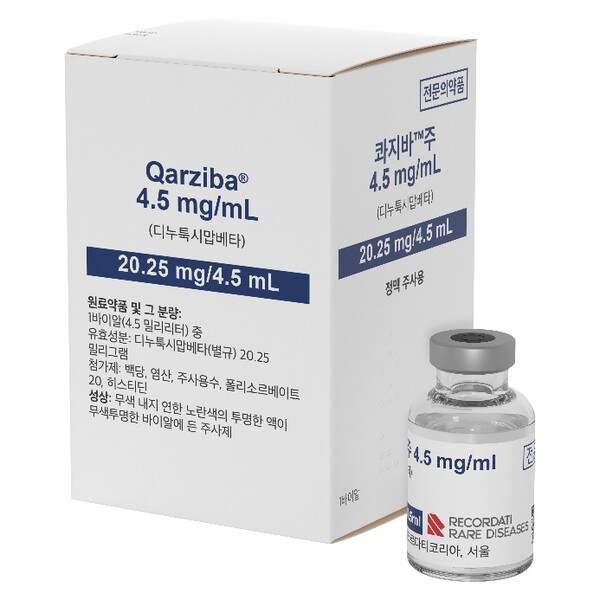Patient organizations have welcomed the reimbursement of Qarziba (dinutuximab beta), an immunotherapy for high-risk and relapsed-refractory neuroblastoma, launched by Recordati Korea.

Qarziba Inj. is the first drug to get coverage under the government's pilot program for the approval, evaluation, and negotiation linkage system, which aims to shorten the reimbursement period for high-cost medicines simultaneously.
“The registration of Qarziba on the list of reimbursed drugs is an important first step toward ensuring rapid patient access to life-saving new drugs,” the Korea Alliance of Patients Organization said in a commentary Monday.
Qarziba is an essential treatment for high-risk and relapsed neuroblastoma patients. The disease primarily affects children under 5.
According to the patient organization, the government and Recordati Korea have agreed to apply three risk-sharing schemes—refund, expenditure cap, and performance-based refund—in reimbursing Qarziba. As a result, patients’ out-of-pocket expenses will be reduced to 17.22 million won ($12,269), or 5 percent of the drug cost of 344.88 million won per person.
If the patients' burden capping system is applied, the co-payment can be further reduced to 10.5 million won. Some 37 patients are estimated to receive benefits annually.
The patient organization highly evaluated Qarziba as the first drug in the pilot project for the approval-evaluation-negotiation linkage system. Establishing reimbursement criteria prior to approval expedited the process.
Qarziba won approval from the Ministry of Food and Drug Safety on June 19 after the reimbursement criteria were set at the fourth Cancer Disease Review Committee (CDRC) on May 29. It was ruled not reimbursable at the eighth Pharmaceutical Reimbursement Evaluation Committee (PREC) on Aug. 8 but was reapproved after the drugmaker's reapplication and a review by the PREC.
“Qarziba’s listing on reimbursement registers, which was achieved in about 13 months, from Oct. 26, 2023, to Dec. 1, 2024, is an example of the potential of the fast-track system,” the patient organizations said. However, it added that “improvements are still needed as the time to list (the new drug) remains long.”
“During the reimbursement process, seven requests for supplementary data were made to the pharmaceutical company, which was a major cause of the delay,” it said. “If the company had been more cooperative, the coverage could have been completed in five to six months, so pharmaceutical companies should be prompter and more responsible in submitting data.”
Related articles
- Immunotherapy Qarziba to be reimbursed for high-risk neuroblastoma patients starting next month
- 'Qarziba, global standard for neuroblastoma, is urgently needed to expand access to treatment’
- Gilead’s breast cancer treatment Trodelvy passes drug reimbursement panel
- Buoyed by Qarziba’s success, MFDS expands support for innovative drugs

